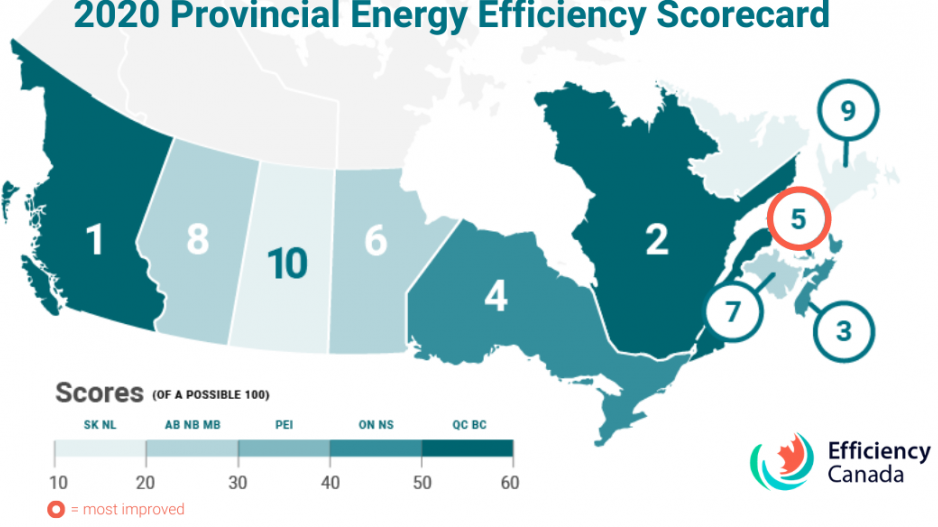British Columbia is leading the pack in energy efficiency policies in Canada, according to a new national scorecard published by Efficiency Canada and Carleton University.
Decreasing energy consumption through regulatory measures and incentives is one of the tools governments can use in its fight to reduce greenhouse gases.
Canada-wide, the report estimates that spending on energy efficiency was about $1.2 billion between 2016 and 2018.
The report estimates the net savings in energy use in 2017 was 26 petajoules – equivalent to the energy used by about 281,000 Canadian homes.
It dropped to 23 petajoules in 2018, however, which may something to do with government policy changes in Ontario and Alberta.
This year, the federal government joined the Three Percent Club, a global alliance of governments and organizations, the goal of which is to achieve a 3% increase in energy efficiency annually. One area of progress is in buildings.
“We note increased provincial action in areas such as building codes, which will need to continue as the federal government publishes updated model national codes intended to put Canada on a path to net-zero energy-ready buildings by 2030,” the report states.
But Canada will need to triple its current rate of energy efficiency if it is to meet its annual 3% target, since that national energy efficiency rates is currently increasing at about 1% per year.
“In other words, in order to meet the three percent target, we need to triple current efforts,” the report states.
The report notes that the Canada Infrastructure Bank’s plan includes $2 billion to invest in “large-scale building retrofits.”
It points out that provincial governments are largely responsible for implementing policies that increase energy efficiency, notably in the areas of buildings and transportation.
B.C. earned the top score this year for the second year in a row. The scorecard notes the BC Energy Step Code, zero emissions vehicle mandate and programs to incentivize switching from natural gas to electricity as key policies.
“The province is ahead in net-zero energy-ready building codes, electric vehicle registrations, industrial energy management systems, and low-carbon heating,” rhe scorecard states. Quebec is in second place on the national scorecard.
“British Columbia continues to lead in both Enabling Policies and Buildings, and Québec again places first in transportation,” the report concludes.
Both B.C. and Quebec are seeing increased electric vehicle sales as a result of their respective policies.
“More than 5% of all new vehicles sold in British Columbia and Québec in 2019 were electric or plug-in hybrid electric vehicles,” the report states.
That adoption rate is “over halfway to the federal government’s 2025 target.”
As detailed earlier this year in BIV News, energy efficiency retrofitting in buildings delivers the biggest bang for the buck, in terms of economic impact. It is something that can be done relatively quickly, and can be nation-wide.
In terms of impacts on the economy, the report finds that efficiency program investments create 16 to30 jobs per $1 million invested, with 60% of home retrofit investments going towards labour.




